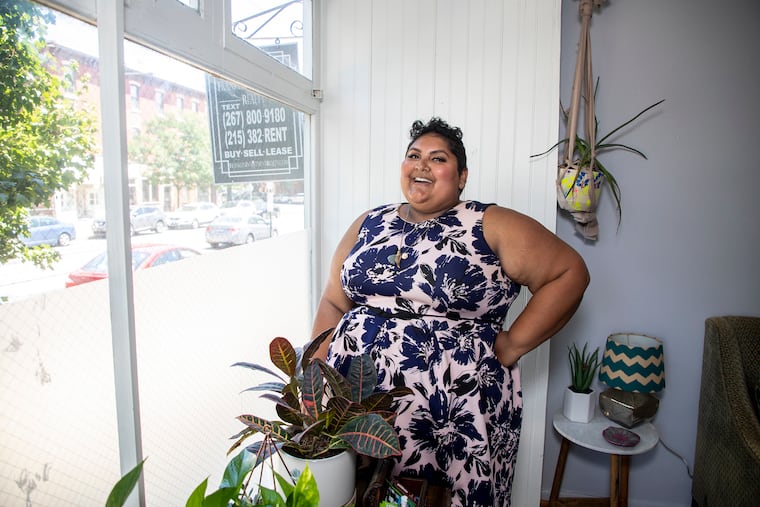Sonalee Rashatwar, a.k.a ‘The Fat Sex Therapist,’ talks gray asexuality, pleasure and attraction
A conversation with Philly therapist Sonalee Rashatwar, who posts as @thefatsextherapist on Instagram.

Sonalee Rashatwar, a social worker and sex therapist, works closely with a small group of clients out of the Radical Therapy Center in West Philadelphia, which they co-founded. At the same time, posting under “thefatsextherapist” on Instagram, Rashatwar ministers to more than 150,000 from afar, crafting pithy messages and therapeutic videos about fatness, capitalism, sex and desire, in all its ever-changing forms.
One in five Gen Z adults identifies as lesbian, gay, bisexual or transgender, according to Gallup — almost double the percentage of their millennial peers. At the same time, the ideas Rashatwar highlights are being battled over, almost constantly, nationwide. The ACLU is tracking more than 250 anti-LGBTQ bills in state legislatures this year alone. Florida’s so-called “Don’t Say Gay” law, which passed last year, served as a model for such bills.
Against this backdrop, Rashatwar spoke with the Inquirer about the changing language people use to identify themselves — and what the future holds, if we can make it there. (The conversation has been edited and condensed for clarity.)
Why does having more words to describe sexuality and gender matter?
In my work with clients, when I’ll offer language like ‘gray asexual’, or ‘gray ace’, or ‘aromantic’ or ‘demisexual’, I can often see this expression of relief, that they have a word that offers space to explore what they’re feeling.
Ideas about fluid sexuality and expansive gender have existed forever, pre-white European colonization. Queerness was woven into the Hindu mythology I grew up reading. I feel so affirmed and excited to have new language because it expands our shared understanding of the human sexual experience.
How do you define gray asexuality?
When I think of gray asexuality, I think of the space between sexual and asexual. It’s similar to the word ‘queer’, where queer is this vague, big word. You don’t really know what that means unless you ask the person using the self-descriptor. And I like that.
It can describe any relationship from still wanting to have sex, still wanting to experience romance with partners, to never wanting to experience sex with a partner, but maybe wanting romance.
Gray asexuality feels like the big amorphous sweater that allows someone to be fluid over time. Being gray ace, it exists under the larger ‘asexual’ umbrella.
It’s a word that allows you to be legible but also invites further conversation.
Yes. I find a deep appreciation in the fact that it can feel like a buffet: take what you like and leave the rest. And that it really also sounds like what a relationship that’s full of consent should be like.
How did you come to your own understanding of your gender and sexual identity?
I identify as nonbinary, butch, masculine of center, but also I have a pretty expansive experience of gender. For example, I still feel very comfortable being called sister, daughter, granddaughter. I have short hair and often dress in a more masculine-of-center or even neutral way. But still sometimes I wear dresses and makeup.
My experiences of gender are really impacted by growing up as a fat kid, because fatness is inherently queering of gender. I’ve read articles by (writer and activist) Hunter Shackelford where they talk about growing up as a young fat Black girl and needing to shop in the boys section because the clothes would fit better, and how that experience alone has this queering — or expanding — effect.
If we talk about this in 10 years, I’m curious what you predict or hope will be happening?
I desperately hope that folks who don’t necessarily identify with the label ‘gray ace’ take lessons from folks who might use that label, noticing how they’re having conversations around sexuality, sexual attraction, romantic relationship.
Having these labels normalizes how our relationship to sexuality changes over the years. Sexuality is fluid. The only things that don’t grow are things that are dead.